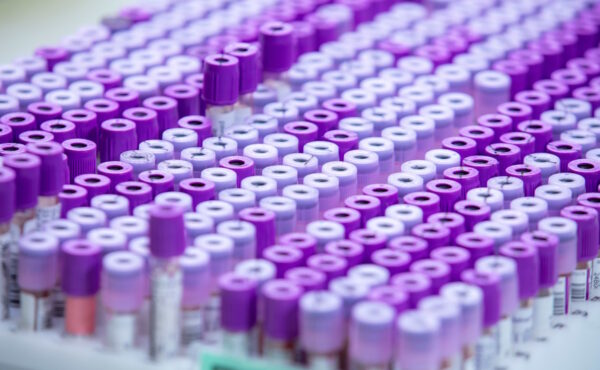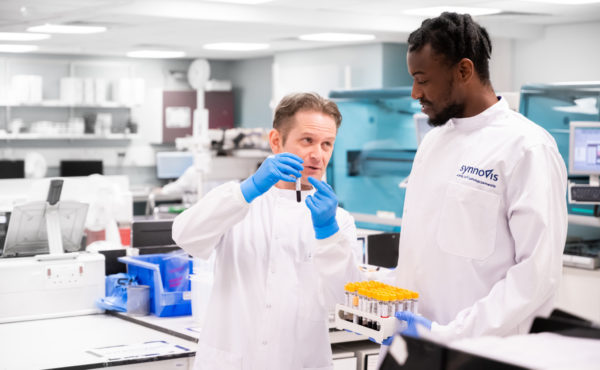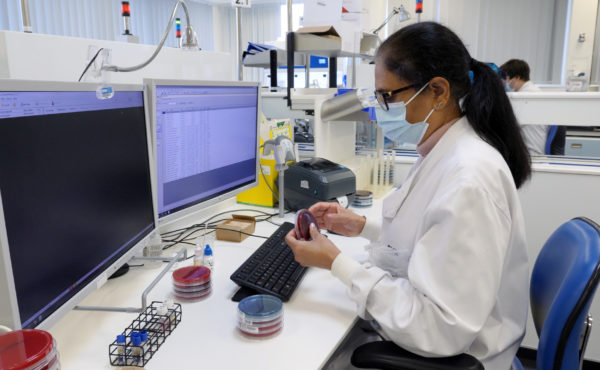Published: 16th April 2025 - All information correct at time of publication.
Taking the awkwardness out of bowel cancer
Almost 44,000 people in the UK are diagnosed with bowel cancer every year, making it the fourth most common cancer. However, according to Bupa, discussions and awareness around bowel cancer are seen as taboo and rarely talked about. Not only can this lead to misinformation but, crucially, may prevent someone seeking help when they need it.
Being aware of the symptoms of bowel cancer is the first step in ensuring more people know when something isn’t right with their body and require investigative tests.
Main symptoms include:
- Changes to stools, including softer stools, constipation or diarrhoea
- Having bowel movements more or less often that is normal for an individual
- Blood in stools
- Stomach pain or a lump in stomach
- Unexplained weight loss
Who has an increased risk of developing bowel cancer?
Researchers don’t know what causes bowel cancer and while anyone can develop the disease, there are certain groups who have an increases risk factor.
Bowel Cancer UK identify the at risk groups as:
- People aged over 50
- A strong family history of bowel cancer
- A history of non-cancerous growths (polyps) in your bowel
- Longstanding inflammatory bowel disease such as Crohn’s disease or ulcerative colitis
- Type 2 diabetes
- An unhealthy lifestyle
How a FIT test can help
A Faecal Immunochemical Test (FIT) analyses a stool specimen for blood and while it isn’t a diagnostic test, if blood is found in the stool, this is classed as a positive FIT test and further tests can be conducted.
In England, Scotland and Wales, everyone aged 50 to 74 will be invited to undertake an NHS FIT test every two years as part of a bowel screening programme.
The FIT test uses specific antibodies to detect blood in stool which is not visible to the naked eye. The specimen is collected in the privacy of the individual’s own home by simply inserting a small ‘stool picker’ (looking a little like a grooved cocktail stick) into a stool sample. The sample is placed in a container with a buffer, sealed and posted to the laboratory for analysis. The technology associated with the ‘stool picker’ means a set amount of stool is sampled and analysed.

Understanding the results of a FIT test
In the laboratory, the container is placed on an automated analyser, which uses Integrated Sphere Latex Turbidimetry to determine the amount of blood per gram of stool present in the sample. This means the analyser assesses the degree of cloudiness in the sample by measuring the loss of intensity of a light beam passed through it; this is directly proportional to the amount of blood present.
Results are expressed as amount of blood per gram of stool. Results of at least 10 ug blood per gram of stool suggest urgent referral for further testing should occur. Results below 10 ug effectively rule out bowel cancer unless there is a strong clinical suspicion of the disease.
How SYNLAB can support your people
Whether you’re looking to implement a wellbeing testing programme for your employees, or an insurance company needing to offer tests to clients, our UK pathology laboratory can support. We carry out thousands of FIT tests every year to help people get a better understanding of their health.
For more information, get in touch with us at https://synlab.co.uk/synlab-laboratory-services/
Ellie Rees | Marketing Communications Manager
Ellie joined SYNLAB in 2023 with a strong background in public sector communications, having worked on campaigns for Welsh Government, Devon County Council and the wellness to work sector. She is passionate about the work that SYNLAB does and creating content that breaks down a complex process into easy-to-understand formats for clients.
Ellie graduated from Goldsmiths, University of London with a BA in Media and Communications and has written for several publications including The Student Guide, The Everyday Magazine and House 21.





